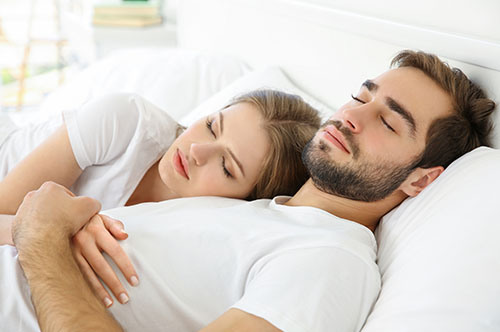Overcoming the Nocturnal Nuisance: A Guide to Quit
Grinding Teeth in Sleep
Are you too familiar with the feeling of a morning headache, having sore and tender jaw muscles, or experiencing extreme enamel wear on your teeth? Then you may have been suffering from bruxism – a condition that causes involuntary grinding of your teeth while you sleep. While it’s not always easy to pinpoint the cause of such chronic grinding and clenching habits at night, getting to the root of this issue can help you manage it better for healthy sleeping habits going forward. So if you’re looking for answers on how to finally quit grinding teeth in sleep – look no further! In this guide, we’ll go over all that needs to be done in order to get relief from this common nocturnal nuisance and start getting restful sleep soon.
Understanding Teeth Grinding and Its Implications
Teeth grinding, also known as bruxism, is a condition characterized by the involuntary grinding or clenching of teeth, primarily during sleep, although it can also occur during waking hours in some individuals. It’s often a result of stress, anxiety, or abnormal bite, but may also be related to other medical conditions or certain medications.
The problem with habitual teeth grinding is that it can lead to a range of dental health issues. Consistent grinding can wear down your tooth enamel, leading to increased tooth sensitivity and even tooth loss in severe cases. It can also result in sore jaw muscles and temporomandibular joint (TMJ) disorders, causing discomfort, pain, and difficulties in jaw movement. Moreover, the persistent noise of grinding can disrupt your partner’s sleep. Thus, it’s essential to address and manage bruxism effectively to safeguard your dental health and overall well-being.

Causes of Teeth Grinding in Sleep
There are several potential causes of teeth grinding during sleep, and it’s often a combination of factors that lead to this condition.
- Stress and Anxiety: These are the most common causes of bruxism. High levels of stress or anxiety can lead to increased physical tension, which is often released through grinding teeth during sleep.
- Sleep Disorders: Certain sleep disorders, like sleep apnea, are associated with bruxism. In such cases, teeth grinding acts as a coping mechanism to prevent the airway from closing.
- Lifestyle Factors: Consumption of alcohol, caffeine, or tobacco, especially close to bedtime, can exacerbate teeth grinding.
- Medications: Some psychiatric medications, especially antidepressants, are known to increase the risk of bruxism.
- Genetic Factors: There might be a hereditary component to bruxism, as it seems to run in families.
Understanding your specific triggers is a key step in managing and ultimately stopping teeth grinding during sleep. It’s always best to consult with a healthcare professional for a comprehensive diagnosis.
Diagnosing and Treating the Condition
Diagnosis of bruxism typically involves a detailed discussion about your symptoms with a dentist or a sleep medicine specialist. They may examine your mouth and jaw for signs of bruxism, such as jaw tenderness and abnormalities in your teeth. In more severe or complex cases, a sleep study or polysomnography may be recommended. This test records your brain waves, oxygen levels in your blood, and heart and breathing rates as well as eye and leg movements while you sleep, providing a comprehensive overview of what’s happening in your body during sleep.
For treatment, a range of options are available depending on the severity of your symptoms and the underlying cause. If stress or anxiety is the underlying cause, cognitive-behavioral therapy or other stress management strategies may be effective. For those with sleep-related bruxism, treating the sleep disorder can often alleviate the grinding.
Mouthguards or splints can be worn at night to keep teeth separated and prevent grinding. These are usually custom-made by a dentist to fit your mouth.
Dental correction methods, such as reshaping the chewing surfaces of the teeth, are also employed in cases where bruxism has caused significant dental damage.
Medications are generally not very effective in treating bruxism, and their use is usually limited to short-term management or as a last resort. Commonly used drugs include muscle relaxants before bedtime and Botox injections to weaken the muscles involved in grinding.
It’s important to remember that treatment for bruxism is not a one-size-fits-all, and what works best for you will depend on the specific causes and symptoms of your condition. Always consult with a healthcare professional to determine the most appropriate treatment.
How to Manage Stress That May Be Causing Teeth Grinding
Managing stress effectively is crucial to alleviate teeth grinding caused by anxiety or tension. Here are some strategies you can employ:
- Mindfulness and Relaxation Techniques: Practices like yoga, meditation, and deep breathing exercises can help in reducing stress and promoting relaxation. These techniques can be particularly beneficial if performed before bedtime as they can help calm the mind and prepare the body for sleep.
- Regular Exercise: Regular physical activity can serve as a natural stress reliever. Engaging in activities you enjoy, such as walking, cycling, or swimming, can help in stress management.
- Healthy Diet: A balanced diet can contribute to better overall health, mood regulation, and stress management. Try to maintain a diet rich in fruits, vegetables, lean proteins, and whole grains.
- Adequate Sleep: Good sleep hygiene is essential in stress management. Establishing a regular sleep schedule, creating a comfortable sleep environment, and avoiding stimulants like caffeine and electronics close to bedtime can promote better sleep quality.
- Professional Help: If your stress levels remain high despite your best efforts, it might be helpful to seek the assistance of a mental health professional. Therapies like cognitive-behavioral therapy can provide effective strategies for managing stress.
Remember, these are general tips and it’s important to find what works best for you. It’s always advisable to consult with a healthcare professional or a stress management expert for personalized advice.

Home Remedies for Teeth Grinding in Sleep
Apart from medical treatments for teeth grinding and stress management techniques, there are also several home remedies you can consider to alleviate teeth grinding during sleep.
- Establishing a Regular Sleep Schedule: Maintaining a consistent sleep schedule can significantly benefit those dealing with bruxism. Aim to sleep and wake up at the same time every day to regulate your internal clock and promote better sleep.
- Limiting Stimulants: Reducing the consumption of stimulants such as caffeine and alcohol, especially closer to bedtime, can help in managing sleep bruxism.
- Avoiding Chewing Non-Food Items: Chewing on pens or pencils can condition your jaw muscles to clench and make you more likely to grind your teeth.
- Practicing Proper Jaw and Mouth Positioning: Physical therapists or dentists can recommend exercises to help you learn how to position your tongue, jaw, and lips in a way that will prevent grinding.
- Applying Warm Compresses: Before bed, apply a warm compress to the jaw to help relax the muscles and reduce grinding.
Remember, it’s essential to seek professional advice before trying any of these remedies, as an expert can provide guidance based on your specific condition and symptoms. It’s also important to note that while these remedies can help manage the symptoms of bruxism, they may not cure the condition entirely, especially if there are underlying causes that need to be addressed.
In conclusion, bruxism is a relatively common condition that can cause various oral health issues and disrupt overall well-being if left untreated. Consulting with a healthcare professional for an accurate diagnosis and personalized treatment plan is essential for effectively managing the symptoms and addressing any underlying causes. Additionally, practicing stress management techniques and following good sleep hygiene practices can also contribute to reducing teeth grinding during sleep. Remember, taking care of your oral health is crucial for maintaining overall health and well-being. So, always prioritize seeking professional help and practicing healthy habits to take care of your teeth and improve your sleep quality.
https://www.google.com/maps?cid=10725474417078119454
